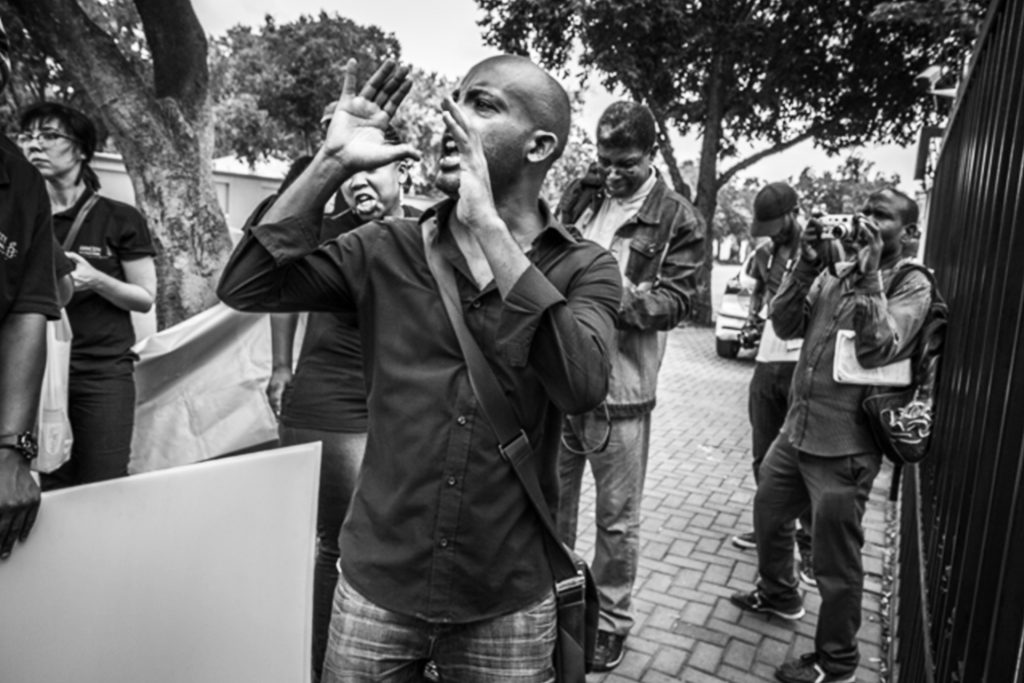The South African government must stop prevaricating around the issue of violence against foreign nationals and take firm action in dealing with the situation, said Amnesty International South Africa today after the outbreak of reported xenophobic violence in Rustenburg, North West Province, this week.
“There is a lack of political will on the part of the government to deal with issues of violence and xenophobia in a sustainable way, and the consequence of this inertia has resulted in continuing sporadic bursts of violence which often end in deaths, injuries and damage to property,” said Shenilla Mohamed, Executive Director of Amnesty International South Africa.
She added: “It has been almost 10 years since a horrific wave of xenophobic violence swept the country leaving over 60 people dead. Since then, the government resolved many times to address the issue and there have been numerous inquiries, including one conducted by former UN High Commissioner for Human Rights, Navi Pillay, which made a number of recommendations. But nothing concrete has been done to combat impunity for xenophobic violence and other related longstanding human rights violations.”
“The lack of political will to take the issue seriously, and to further implement domestic laws and regional and international standards that protect migrants and refugees, is astounding. Years of talk must now become action or xenophobic incidents and attitudes will continue, possibly resulting in further avoidable deaths, injuries and damage to property,” said Shenilla Mohamed.
Background
South Africa has experienced violence with xenophobic undertones for decades but recent spates – in particular in 2008 and 2015 – have seen increased levels of intensity.
These echo recommendations published by the Special Reference Group on Migration and Community Integration in KwaZulu-Natal, headed by Judge Navi Pillay, former UN High Commissioner for Human Rights, in October 2015, which called for the government to take firm action in dealing with the issue and recommendations included: responsible leadership statements, proactive foreign policy development, education campaigns, disaster management plans, developing and enhancing policies as well as capacitating organisations that manage migrants, refugees and asylum-seekers among others.
For more information or to request an interview, please contact:
Mienke Steytler, Media and Digital Content Officer, Amnesty International South Africa:
Office: +27 11 283 6000
Mobile: +27 (0)64 890 9224
Email: mienke.steytler@amnesty.org.za


